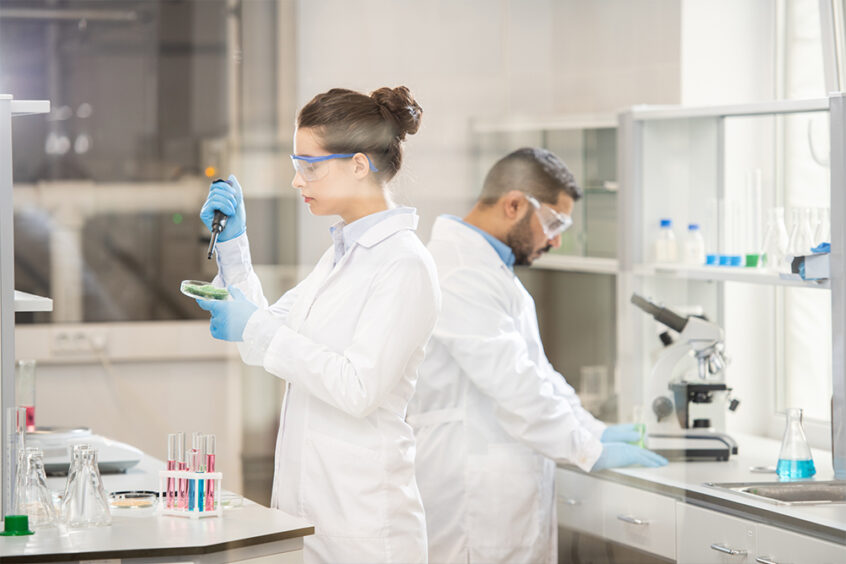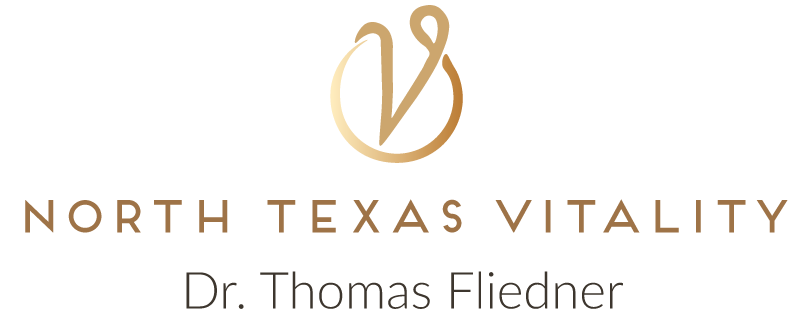What are Bioidentical Hormones?

Each year, Dr. Fliedner treats more and more men and women with bioidentical hormone therapy. His patients hear about the health benefits from friends and family members – benefits such as clearer thinking, weight loss, and a return to a healthy libido – and they want some of that.
But he often gets asked, “What are bioidentical hormones, and how are they better than conventional synthetic hormone therapy?” Dr. Fliedner answers your questions below:
- What are Bioidentical Hormones?
- What are Compounded Bioidentical Hormones?
- Has the FDA approved Bioidentical Hormones?
- Bioidentical vs. Synthetic Hormones?
- What do Bioidentical Hormones treat?
- Are Bioidentical Hormones safe?
What are Bioidentical Hormones?
“The term bioidentical hormone does not have a standardized definition and thus often confuses patients and practitioners. Women who request bioidentical HT (BHT) from their physicians may have differing expectations,” according to the National Library of Medicine.
Though the term “bioidentical” is not an official term, it refers to hormones that have the same chemical structure as the hormones naturally found in the body. They are believed to be more easily recognized and processed by the body than synthetic hormones, which have a slightly different molecular structure.
Bioidentical hormones are lab-made hormones made from a plant steroid called diosgenin, found in soy and wild yams. You might think, “Can’t I simply eat soy or wild yams and get the same benefit?” No. Diosgenin needs to be chemically converted in a lab first, and once it is, these hormones look and act like the hormones in your own body. Their molecular structure is identical to the hormones naturally produced by the human body.
Compounded Bioidentical Hormones
When discussing bioidentical hormones, we refer to compounded hormones. Compounded bioidentical hormones are made by a compounding pharmacy.
Dr. Fliedner prescribes a custom hormone therapy for each patient, and the compounding pharmacist prepares specifically what Dr. Fliedner prescribes. Unlike commercially available bioidentical hormone products, which come in standard dosages and forms, compounded bioidentical hormones are individually prepared to meet the specific needs of a patient.
The process of compounding involves combining specific bioidentical hormones, such as estrogen, progesterone, or testosterone, in precise doses and forms, such as creams, gels, capsules, suppositories, etc.
This customized approach to managing hormone imbalances can lead to fewer side effects than traditional hormone therapy. “Compounded bioidentical hormones allow a doctor to more effectively treat and dose his patients as the compounding pharmacist can adjust the dosage and formulation to suit an individual patient’s requirements,” says Fliedner.
FDA-approved Bioidentical Hormones
The U.S. Food and Drug Administration (FDA) has approved several hormones that meet the definition of “bioidentical.” These include a variety of tablets, creams, inserts, and more to help relieve hormonal imbalances.. Some of the FDA-approved bioidentical hormones include those listed below:
- Estradiol: This is a bioidentical form of estrogen and is available in various forms, such as oral tablets, transdermal patches, gels, and creams. It is commonly used in hormone therapy for menopausal women to alleviate symptoms like hot flashes, vaginal dryness, and mood changes.
- Progesterone: Bioidentical progesterone is used in combination with estradiol for hormone replacement therapy in women who have a uterus. It can be found in oral capsules and some forms of intrauterine devices (IUDs) that release progesterone.
- Testosterone: Bioidentical testosterone is used in hormone therapy for men with low testosterone levels, a condition known as hypogonadism. It is available in various forms, including injections, gels, patches, and pellets.
- DHEA (Dehydroepiandrosterone): DHEA is a precursor hormone that the body converts into testosterone and estrogen. Some DHEA supplements are considered bioidentical, and certain forms of DHEA have been FDA-approved for specific medical conditions.
Bioidentical vs. Synthetic Hormones
Bioidentical hormones and synthetic hormones are two different types of hormones used in hormone replacement therapy. As mentioned above, bioidentical hormones have the same molecular structure as the hormones made by your body. Synthetic hormones do not, but your body converts them to a usable form.
Synthetic hormones have received mixed reviews over the years. In 2002, the medical community came out against synthetic hormones when the initial results of the Women’s Health Initiative (WHI) were released. This was the largest women’s health prevention study ever conducted. The findings showed that synthetic hormone therapy in postmenopausal women could raise the risk of breast cancer, blood clots, heart disease, and other conditions.
Since then, patients have increasingly requested bioidentical hormones because they view bioidentical hormones as a safer alternative to synthetic hormones. Doctors and scientists continue to conduct many studies comparing the two approaches.
The conclusion: “Physiological data and clinical outcomes demonstrate that bioidentical hormones are associated with lower risks, including the risk of breast cancer and cardiovascular disease, and are more efficacious than their synthetic and animal-derived counterparts. Until evidence is found to the contrary, bioidentical hormones remain the preferred method of HRT.” (National Library of Medicine)
What do Bioidentical Hormones treat?
Bioidentical hormones are used to treat a variety of hormonal imbalances and conditions in both women and men. In women, it is commonly used to alleviate symptoms associated with menopause, such as hot flashes, night sweats, mood swings, and vaginal dryness. In men, it may be used to address symptoms of andropause (male menopause) and other hormonal imbalances.
Some of the conditions and symptoms that bioidentical hormones may be used to treat include
- Menopause: Bioidentical hormones, such as estrogen and progesterone, are commonly used to alleviate menopausal symptoms like hot flashes, night sweats, vaginal dryness, mood swings, and sleep disturbances.
- Perimenopause: This is the transitional phase leading up to menopause, and women may experience hormonal fluctuations and related symptoms, many of which bioidentical hormone therapy can alleviate.
- Hormone Imbalance: Bioidentical hormones can be prescribed to both men and women with hormone imbalances, such as low testosterone or estrogen levels, to restore hormone levels to normal ranges.
- Andropause: Bioidentical testosterone is sometimes prescribed to men with age-related testosterone decline, often called andropause, to alleviate symptoms like low libido, fatigue, and mood changes.
- Polycystic Ovary Syndrome (PCOS): In women with PCOS, hormonal imbalances can lead to irregular menstrual cycles and other symptoms. Bioidentical hormones may be used to help regulate hormone levels.
- Endometriosis: Bioidentical progesterone can be used to treat endometriosis and help manage symptoms related to the condition.
- Hormone-related Cancers: In some cases, hormone therapy may be used as part of the treatment plan for certain hormone-sensitive cancers, such as breast or prostate cancer.
Are Bioidentical Hormones safe?
The safety of bioidentical hormones, like any medical treatment, depends on various factors, including the individual’s health status, medical history, dosage, and the specific hormones used. When used appropriately and under the guidance of a qualified healthcare provider, bioidentical hormones are considered safe for most individuals.
The importance of finding a healthcare provider that you feel comfortable with is critical to the success of bioidentical hormone therapy. Dr. Fliedner has over 30+ years of experience treating hormonal imbalances in both men and women. He will work up a panel of studies, evaluate the results with you and prescribe a bioidentical hormone therapy to address your issues.
Next Steps
Our staff at North Texas Vitality is here to help you navigate your personal approach to hormonal therapy. If you have any questions, contact our office to schedule an appointment by calling 469-455-1665 or fill out the form below. We look forward to meeting you!
